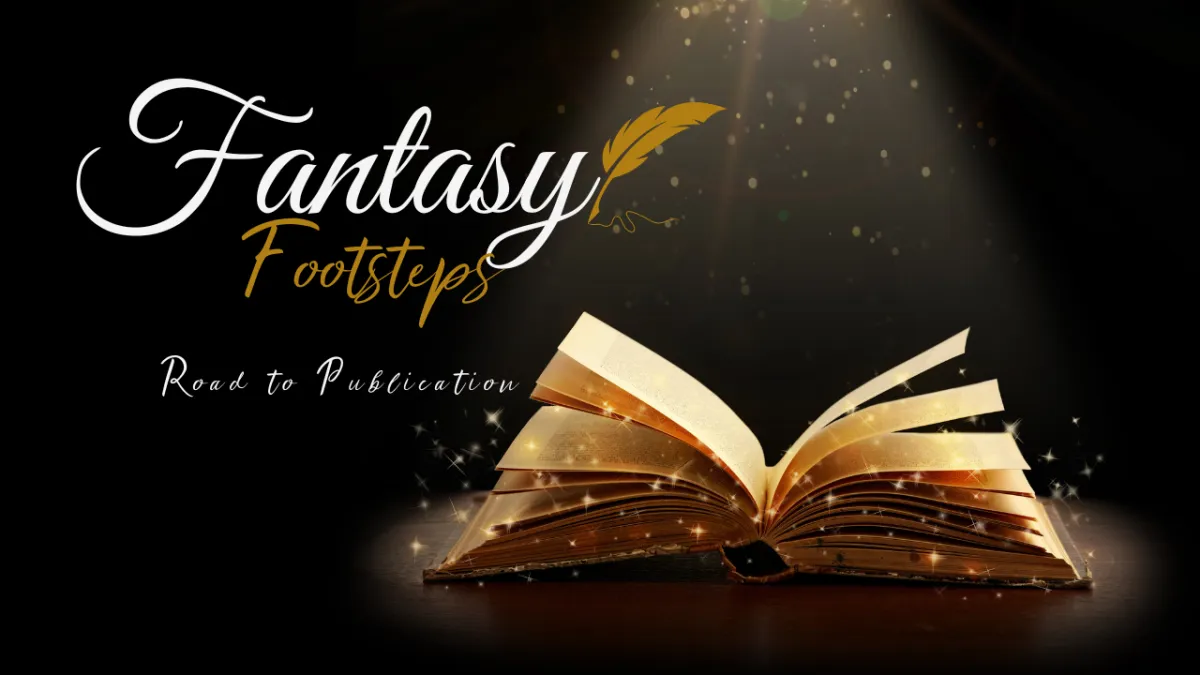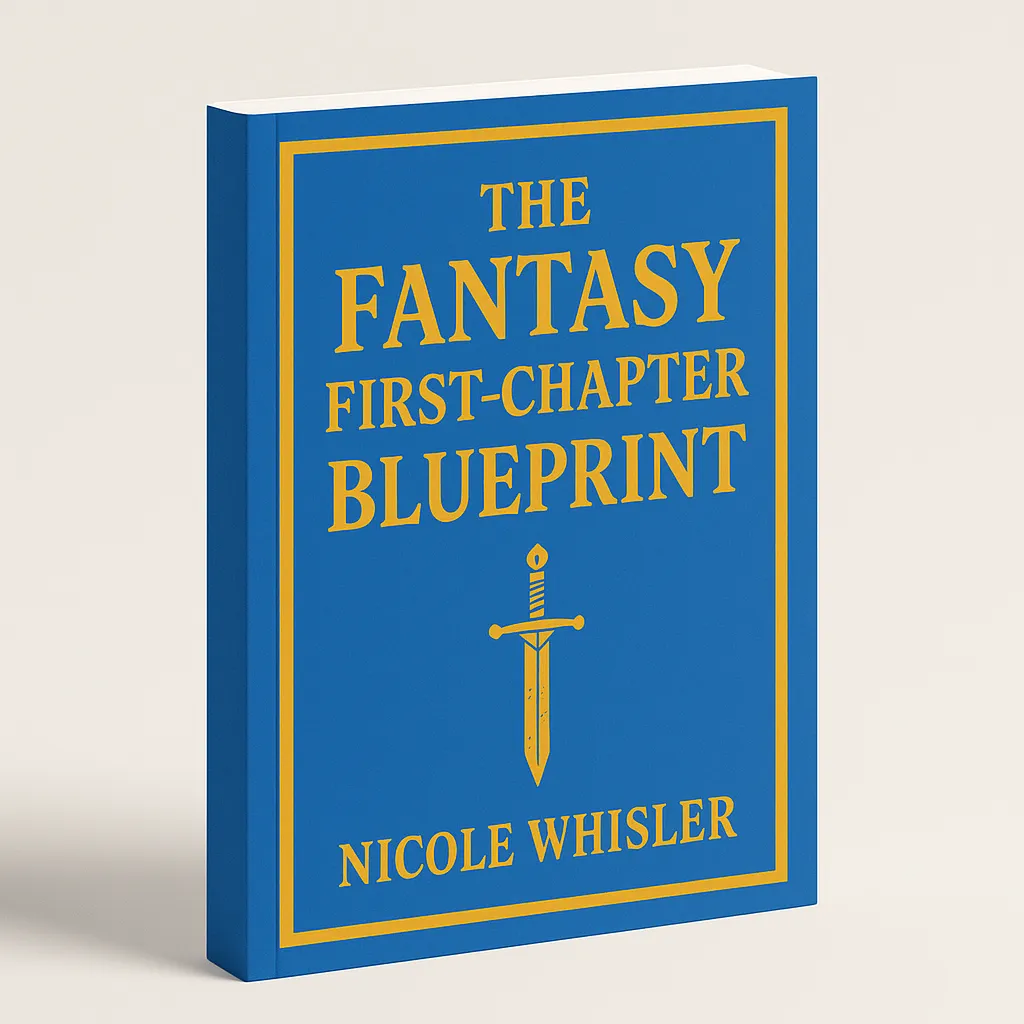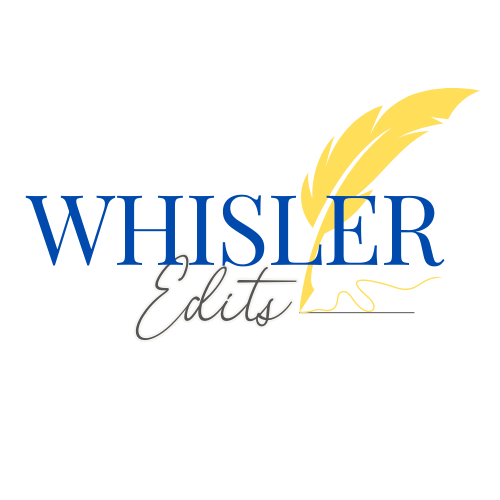The Fantasy First-Chapter Blueprint
Your first chapter is your one shot to hook an agent or a reader. Don't let the 7 deadliest mistakes land your manuscript in the rejection pile. This free 7-day email course gives you the step-by-step blueprint to avoid them and craft an irresistible opening.

Your Novel Matters ...
Looking for the right book coach for your fantasy novel?
Are you a fantasy writer …
… struggling to convert the vivid scenes of your fantasy novel from your imagination to the page?
… stuck in a loop where you constantly rewrite your opening pages?
… worried your story won’t resonate with your readers?
What if I could show you the exact steps week to week that would take you from brainstorming and drafting to revising and publication?
I specialize in developmental editing and book coaching for writers of fantasy novels—writers who value the craft of storytelling and wish to create stories that resonate.
My Services
Develop Your Ideas
Fantasy Footsteps: Road to Publication

I’ll let you in on a secret. All you need to succeed as a writer are three things:
A Roadmap: Illuminate your path with a step-by-step guide, ensuring you achieve your writing goals every week. From outlining to publishing, every stage of your journey is mapped out for success.
Mindset Mastery: Learn how your thoughts control your outcomes in your writing. Overcome self-doubt and unearth the confidence that will bring your unique ideas to life on the page.
Personalized Support: Prepare for comprehensive assistance, real-time accountability, and feedback tailored to your needs. From brainstorming sessions to final publication, you'll have a dedicated ally guiding you every step of the way.
With these three pillars, you'll unlock the potential to:
Craft a captivating story that enthralls readers from the first page to the last.
Develop complex characters and immersive worlds that resonate deeply with your audience.
Navigate the complexities of plot twists and pacing, keeping readers hooked until the final chapter.
Receive specific guidance on refining your scenes so that readers root for your protagonist.
Overcome writer's block and stay motivated throughout your writing journey, ensuring consistent progress.
Transform your rough draft into a polished, professional manuscript ready for publication.
Are you ready to turn your fantasy novel from a mere vision into a masterpiece that captures hearts and minds?
Join Fantasy Footsteps: Road to Publication and begin your author journey with everything you need to write a story that works.
Don't let your story remain trapped in your mind—bring it to life with me!
If you’re thinking, “Yes, please! Tell me what to do!” , I’d like to invite you to work one-to-one with me to finish your novel and write a story that works. Join my book coaching program designed specifically for fantasy writers—Fantasy Footsteps: Road to Publication.

Discover Helpful Tools
Resources For Writers
Here you will find some of my favorite resources for writers.
Add these books, podcasts, websites, and other resources to your writing toolbox to augment your writing at any stage.
Join My Free, Private Facebook Group
Finish My Fantasy Novel: Write & Revise My Best Book in 6 Months
In the group, I go live weekly with writing tips. The group is also a platform for writers to support each other and share their wins and progress.
Live training schedule:
1st Tuesday of the month: Free critique for someone in the group!
2nd Tuesday of the month: Writing sprint with fellow writers
3rd Tuesday of the month: Live training on a specific topic
4th Tuesday of the month: Interview with an author or marketing/business expert


Improve Your Craft
Writing Advice Blog
As a developmental editor and book coach, everything I post is designed to help you build your creativity, strengthen your prose, and explore new avenues in your writing. The opinions in each post are my own, but many are inspired by ideas from established authors and editors who excel in their fields.
Rely on my blog for clear and specific writing advice, motivational tips and grammatical aid, and interviews with experts!
Hi! I'm Nicole.
I’m a Developmental
Editor & Book Coach for Fantasy Writers.
Like you, I'm a writer. I understand the mental and emotional ups and downs of storytelling. Don't let resistance win! Recognize the value of good advice plus hard work.
My approach to novel writing is multifaceted. For a deeper understanding of my process and style, take a look at some of my favorite craft-of-writing books in my Resources section.
What can I say about myself? I read, I write, I read about writing, and I write about reading. It never gets old to me.

See what writers like you are saying . . .

Nadir Shirazi
“I’ve been stalling on my Islam-inspired sci-fantasy series for 10 years. But within 10 minutes of starting Nicole’s program, I started writing again."

Amanda Emerick
“I can’t recommend Fantasy Footsteps enough to writers who are legitimately looking to polish their craft, write, and eventually publish their novel."

Trinity Cunningham
“I loved discussing my story with Nicole. She provided me with invaluable insights I never would have considered on my own."
Latest on the Blog

You will find no pictures of kittens here. No images of favorite dessert recipes, snapshots of my recent vacations, videos of puppies playing the piano (although I do love dogs), or YouTube clips of monkeys stealing people’s sunglasses.
I’m genuinely sorry if that disappoints you.
Instead, you can rely on my blog for clear and specific writing advice, motivational tips, grammatical aid, and author/editor interviews.
As a developmental editor & book coach, everything I post is designed to help you build your creativity, strengthen your prose, and explore new avenues in your writing. The opinions in each post are my own, but many are inspired by ideas from established authors and editors who excel in their fields.
Some of these tips might be just what you need to hear. Others might not work for you personally, and that’s okay.
Apply the tips that fit your personality and writing habits, and feel free to adapt or ignore the others. For further questions and comments, you can email me or reach me through my Contact page.

Worldbuilding 101 for Fantasy Writers
Discover in this post …
the biggest mistake fantasy writers make when crafting their world.
my three cardinal rules of worldbuilding.
a simple method to help build the foundation of a fantasy world.
Too Much Worldbuilding Is a Thing?
If you write fantasy, you probably have an opinion about how to build your novel's world—how to bring to life your story's history, geography, religions, government, traditions, and more.
I've known writers who have spent a decade diving into the intricacies of their magic system, the backstories of their protagonist's ancestors, the specific weather patterns that affect the land, the historical happenings that lead to the power dynamics on the page.
And I'm all for building a realistic, expansive world that immerses readers and makes them feel as if the world they've chosen to experience is alive.
BUT.
Not at the expense of not finishing the book.
And not at the expense of losing track of the main story.
In my experience, it's much easier for a writer to spend too much time worldbuilding than not enough. (If you're thinking of mimicking J.R.R. Tolkien, who spent over six decades planning The Lord of the Rings, ask yourself: Do I want to publish my book now or in sixty years?)

If it doesn't make a difference to you, then build your world to your heart's content. I mean that sincerely.
But if your goal is to connect with readers sooner rather than later, I'd recommend following my first cardinal rule of worldbuilding: Your worldbuilding details should arise naturally from your protagonist's needs and wants throughout the book.
OR ... your protagonist's needs and wants should arise directly from your worldbuilding.
Either way works, as long as the two are intertwined.
In other words, anything you take time to develop should impact your protagonist in your core story (with "core story" referring to what's happening in real time on the page, not the backstory that led up to those events).
"But everything impacts my character," writers sometimes tell me. "That's why I'm working so hard on the background—because once I have it done right, everything will line up perfectly, and I can start writing."
If you resonate with that thought, I understand where you're coming from. I agree that you'll of course want to devote some time to your world before you start writing. But if your goal is to achieve perfection from the start, it's statistically more likely that you'll end up stuck—or circling around and around in your early chapters, if you get to them at all—than emerging victorious with a finished draft.
Below, I have two key pieces of advice for you. One will help you move forward rather than backward in your worldbuilding and your story. The other will help you build a solid foundation for your world.
Let's dive in, shall we?
Choose Your Worldbuilding Thought
Some of you might be tempted to jump to the section below, where I help you flesh out the foundation of your world, but I don't want you to miss out on consciously choosing your thought around worldbuilding. It's equally important and not discussed enough in writers' circles.
I've often spoken about how our thoughts produce our feelings in life. Our feelings produce our actions, and our actions determine our results. Let me show you how that pattern relates to worldbuilding.
Say we have three different writers, each with a slightly different attitude about the worldbuilding process. Read each of the thoughts below and identify the result you believe each writer will achieve if they allow the chosen thought to occupy their focus:
"My world needs to be unique, different from anything that's been done before."
"I want my world to be perfect, fully fleshed out before I write Chapter 1."
"I have a lot of work to do on my worldbuilding."
Did you identify the result each writer will likely achieve? Here's my take:
With Thought #1 ("My world needs to be unique"), the writer will spend a great deal of time thinking about how to make their world unique. They will consider and reject a multitude of ideas, berate themselves for not being able to think of something truly unique (because everything has, to some extent, been done before), and set their notes aside, ready to take up the pen whenever a new idea comes their way. But it rarely does, and so they rarely write.
Thought #2 ("I want my world to be perfect") sends the writer diving headfirst into brainstorming, devising pages and pages of notes and backstories.

Each time they think of a new idea, this changes something about what they've already brainstormed, so they go back and modify that item. But sometime during the worldbuilding process, they lose sight of the core story.
They tell themselves they're okay with spending as long as they need to worldbuild—but in reality, they're hiding from the writing stage. They don't have any timeline in mind of when they'd like to work on their actual draft, and because they haven't set a specific goal to which they can be held accountable, they stay in worldbuilding mode for months, sometimes years.
With Thought #3 ("I have a lot of work to do"), the writer's brain will offer up major resistance because the writer has identified the act of worldbuilding as arduous. Anything the brain sees as strenuous and time-consuming, it will resist and delay. Our brains like to embrace "fun" and avoid "challenging," so categorizing the worldbuilding process as "a lot of work" will immediately send red flags to your nervous system and increase the pressure you feel when you think about your story's world—which engenders inaction and anxiety rather than movement.
Do you identify with any of the above thoughts and results? If so, what thought do you want to choose instead? What will keep you moving toward your goals rather than allowing yourself to stay stuck?
I always say that we don't choose the thoughts that enter our brains. But we do get to choose what we focus on.
In place of the above thoughts, try any of these:
"Worldbuilding is part of my process as a fantasy writer, but my focus will remain on my core story." (This will prevent you from going into overdrive and thinking you need to name every ancestor, identify every historical battle, determine every fine detail of how your world came into existence.)
"I can't wait to dive in and see how my world will shape my characters' beliefs, biases, hopes, and worries." (This will produce excitement and anticipation, and it will keep you centered on what's relevant.)
"If I run into a snag in my worldbuilding, I can skip it and address it later." (This eases the pressure you've put on yourself to do everything "correctly and in order." Sometimes your ideas will flow easily, and sometimes they won't. And that's okay. Brandon Sanderson tends to outline his books but has also "discovery written" some aspects of his plots and characters. Agatha Christie's notes suggest that she sometimes didn't know who the murderer was when she began writing. Even the "lore maestro" Tolkien said that when the hobbits happened upon Strider in the Prancing Pony, he had as much idea of who this dark stranger was as the hobbits did. So don't worry if you have some missing pieces when you're working on your first draft. More often than not, important elements of your story and its background will arise organically as you write. )
Have you chosen the thought you want to focus on during the worldbuilding stage? If so, it's time to turn your attention to something fun: the foundation of your fantasy world.
Build Your Story's Foundation
Let's talk about your world's foundation!
I've already mentioned my first cardinal rule of worldbuilding: Anything you take time to develop should impact your protagonist in your core story.

For example, if your world has six moons because you jotted down that detail in a notebook and thought it was cool, but it doesn't affect anything in your main story, I'd argue there's no reason to include it on the page. It might even distract readers and make them wonder when the moons will come into play.
Some readers might find the six moons "cool," true, but how can we take "cool" and make it "memorable"?
What if your world has six moons and is divided into cultures that worship each moon goddess—and each moon goddess has different attributes she values? Now we have a setup for your story itself.
Maybe your protagonist, Ivan, is from a culture that approves of human sacrifices to the moon goddess. Perhaps Ivan feels there's no better way to demonstrate his devotion to his moon goddess than to sacrifice someone he values. Perhaps he believes that the family member he sacrifices will be reincarnated as the person they most want to be. Maybe it's an honor to be sacrificed to the moon goddess, and guards patrol the perimeter of the offering site to stop unofficial offerings, which have caused a population issue.
Someone from another culture in your story, though, might worship a moon goddess who values all human life and desires nothing but a daily acknowledgment and a prayer. This contrast in belief will lead to natural controversy between characters: What happens when the characters from these cultures meet? What if Ivan is determined to sacrifice himself to the moon goddess by the end of the week, while a character from a different culture believes that a loving goddess would never require human sacrifice?
Cultures revolve around beliefs and norms—which brings us to my second cardinal rule of worldbuilding:
Your worldbuilding should shape your protagonist's beliefs. This means your protagonist's actions and reactions throughout your story will reflect those beliefs.
Or, if you look at it the other way around, your protagonist's actions and reactions will shape your worldbuilding. Remember that it doesn't matter which comes first as long as your worldbuilding and protagonist's beliefs are intertwined. (Don't become an author who sets their fantasy novel in a fantastically ancient world, but almost everything about the characters is interchangeable with your modern-day Joe/Jill. Part of the point of literature is to step outside our own perspectives!)
Imagine you've created a world in which the people of a certain culture view kindness as weakness. You could then place a character who's inherently kind into that backdrop.
Or ... you could start by fleshing out a character. You could assign kindness as one of their primary qualities, and then ask yourself, "What kind of world would be problematic for this type of character?"
See how it works either way, as long as your character's beliefs relate to the underlying development of your world? What beliefs has your protagonist picked up from their culture—and how do those beliefs affect the way your character views the world, which in turn affects your story?
That brings us to my third and final cardinal rule of worldbuilding, which ties into the others:
Compelling worlds involve a heavy dose of "cause and effect"; they're never a laundry list of facts.
Think of how many elements you have the opportunity to include as you craft your world! Here are a few:
History
Magic system
Climate
Geography
Politics
Science
Education
Morality
War
Religion
Food
Traditions
Language
Gender & social roles
Architecture
Economics
Fashion
Music
Think how overwhelming it would be to tell yourself you need to include extensive details about each of the above items (and more, since this list isn't all-inclusive!). No wonder writers sometimes spend years building their worlds.
Instead of overdoing it and making your task seem impossible, choose one of the above items, state a fact about it that fits your world and your story, and ask yourself a series of cause-and-effect questions.

For example, perhaps you've decided that in one of the cultures in your world, people aren't allowed to sing, play instruments, or make music of any kind. How would that affect your main characters and your story? Have your characters replaced music with something else they find soothing? Have some people revolted and launched secret meetings where anyone can still express their musical talents? Does your protagonist have a natural talent for music that they don't discover until they attend one of these secret meetings? Does musical expression play a major thematic role in your novel?
You get the idea.
As I mentioned, I don't advise fleshing out every element above. Choose one or two to start. If an item isn't relevant to your story, cross it off your list. Trying to come up with unique details for every item imaginable is a surefire way to spend time on something that doesn't make sense to prioritize.
Train your brain to focus on what matters: how your selected elements of your world affect your main characters in the core story. That's what readers care about most, and that's what will allow you to move on from the brainstorming stage to Chapter 1.
As a reminder, here are my three cardinal rules of worldbuilding. Jot these down so that you don't ever get lost in your brainstorming and can move forward like a pro!
Anything you take time to develop should impact your protagonist in your core story.
Your worldbuilding should shape your protagonist's beliefs.
Compelling worlds involve a heavy dose of "cause and effect"; they're never a laundry list of facts.
Happy worldbuilding! Once you get to the drafting stage, check out my blog post on "4 Ways to Incorporate Worldbuilding Naturally," which shows you how to avoid info dumping the details of your backstory in your manuscript itself. But don't skip steps! Start with building your story's foundation. (Notice I said start, not finish. Don't get ensnared in your own web of worldbuilding!) Then enjoy writing your first draft, knowing you've developed an engaging and relevant backdrop for your fantasy world.
Did this post help you view worldbuilding in a new light? Did it decrease the anxiety you sometimes feel when starting to create a new world? Did it give you some ideas for how to ensure your worldbuilding makes sense and stays engaging, believable, and immersive? I'd love for you to email me at [email protected] to let me know!
Do you want to learn how to write a story that makes your target readers stand up and cheer? If you’d like support from A to Z (from brainstorming to drafting to revising to publication), book a Discovery Call with me to see if you’re a good fit to join my book coaching program, Fantasy Footsteps: Road to Publication. And if you haven’t done so already, grab your Free Guide on how to hook readers from your story’s start!

Capture Your Readers from Your First Scene
Get my exclusive blueprint—7 Mistakes to Avoid in Your Fantasy Novel’s Opening. Start your fantasy novel right!
Are you worried you've failed to establish a bond between readers and characters in your first chapter? Do you wonder if you've bogged readers down with your worldbuilding? Do you sometimes overlook essential conflicts? Many readers will put your book down if it doesn't grab their attention right away, so it's vital to evoke powerful emotions from readers as early as possible.
Don't let these common mistakes rob your story of its magic and momentum. Save your precious time and energy by ensuring you hook readers from the start. Grab your guide now and check your opening against these common missteps!
(You will also receive monthly writing advice, updates about my free live trainings, and direct access to replays. Unsubscribe anytime.)

